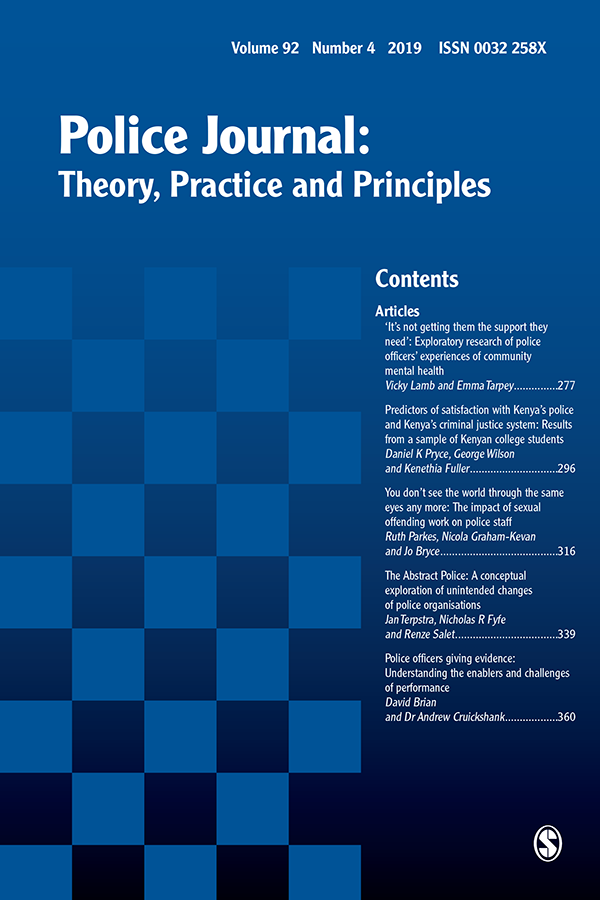Abstract
Aim: Managing global security risks and the development of information technology in the 21st century have led to significant changes in the relationship between the police and the society. Examining these changes is essential to determine the future role of law enforcement. With this in mind, the author undertakes to present a study by Jan Terpstra, Nicholas R. Fyfe, and Renze Salet, entitled “The Abstract Police: A Conceptual Exploration of Unintended Changes in Police Organizations,” published in the online edition of the Sage Journal in December 2019.
Methodology: The review is based on the primary source analysis of this study and the elaboration of the international literature on the subject. As a side effect of the reform of the Scottish and Dutch police, which were reorganized in 2013, the internal relations of the police and the connections to the civil communities of the society are also becoming more formalized and abstract.
Findings: The social and technological changes, that have helped the police to become abstract, are inevitable and therefore they can be hardly influenced. That is why the question is not what we can do against that, but how we can adapt to the changed situation.
Value: Based on the phenomenon revealed in the study, it is necessary to examine in the future how the abstract police present in the Hungarian law enforcement and what responses can be made in order to maintain a close relationship between the police and the society.

